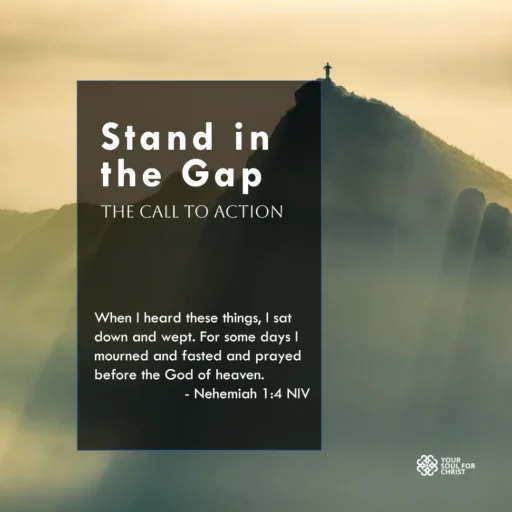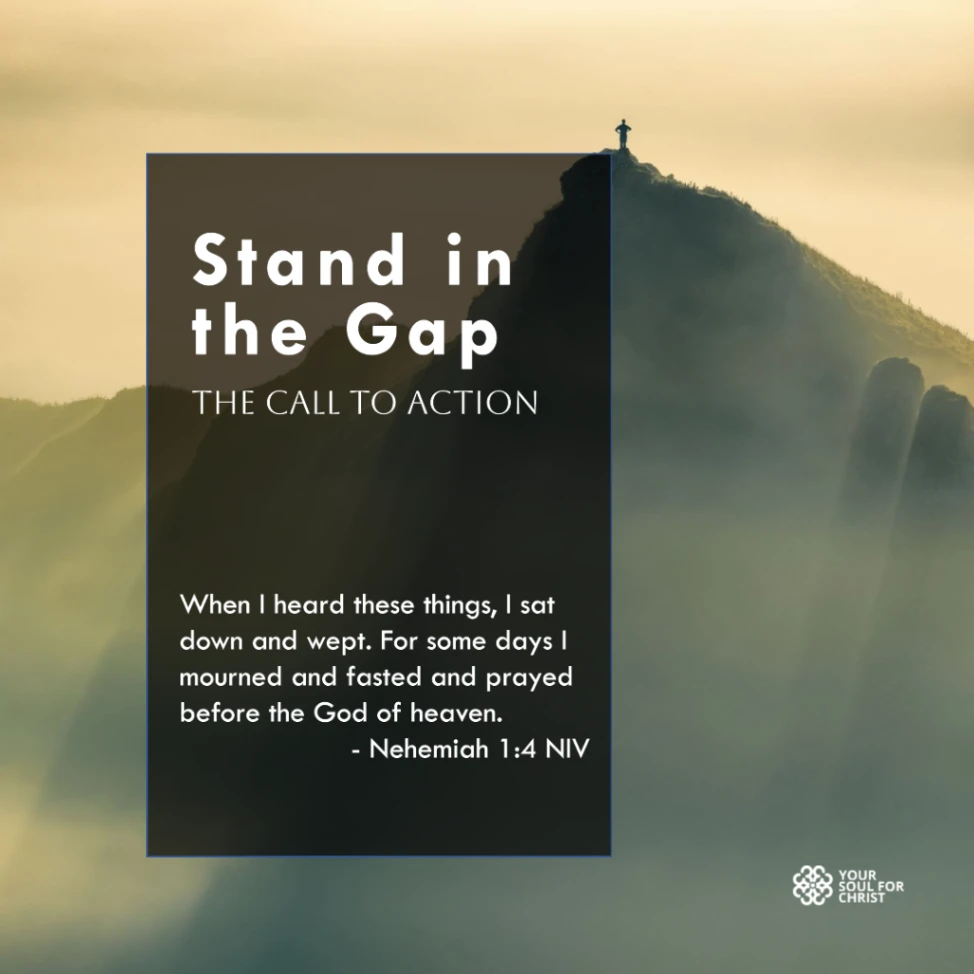When I heard these things, I sat down and wept. For some days I mourned and fasted and prayed before the God of heaven.
Nehemiah 1:4 NIV
In times of moral decay, spiritual complacency, and societal brokenness, God searches for individuals who will stand in the gap. These are people willing to rise in prayer, action, and intercession to defend their families, the church, communities, and nations. The need to stand in the gap has never been more urgent than it is today.
Much like in the days of Ezekiel, darkness seems to dominate the world around us. Our culture often prioritises power, pleasure, and possessions over truth and righteousness. Yet, amidst this pervasive darkness, God continues to call His children to be salt and light, working as agents of change in these challenging times.
Throughout Scripture, we see examples of individuals who rose to the occasion, standing in the gap to bring about transformation. Deborah, for instance, stood as a judge and prophetess in a time when Israel was plagued by oppression and idolatry. Her boldness to step into leadership and respond to God’s call led to Israel’s deliverance. Despite living in a patriarchal society, Deborah did not wait for someone else to act. She arose as a mother in Israel, galvanising the nation to defeat their enemies and return to God. Her story is a powerful reminder that when we arise in obedience to God’s call, He uses us to accomplish His divine purposes, regardless of societal expectations or limitations.
Similarly, the story of Nehemiah reveals the burden of rebuilding and restoring. A long time after Jerusalem fell to the Babylonians, the city’s walls lay in ruins, leaving it vulnerable to attack. For Nehemiah, the state of the city’s walls stirred a deep burden within him. He could not bear to see his people remain exposed and their dignity shattered. Nehemiah appealed to King Artaxerxes of Persia and secured his support to return to Jerusalem and rebuild the walls. With faith, determination, and prayer, Nehemiah led the people in overcoming obstacles and restoring ruins. His actions remind us that standing in the gap often requires boldness, perseverance, and a willingness to rebuild what others have neglected.
Esther, another remarkable figure, exemplifies the courage needed to stand in the gap (Esther 4:15-16). Living in Persia during a time of political intrigue and cultural decadence, Esther found herself in a position of influence as queen. When Haman, a high-ranking official, devised a plot to annihilate the Jewish people, Esther faced a life-altering choice. She could remain silent to protect herself, or she could risk everything by interceding for her people. Esther’s decision to approach King Xerxes, revealing her Jewish identity and pleading for her people’s lives, led to the deliverance of millions of Jews. Her story demonstrates the importance of stepping into positions of influence and speaking up for those who cannot defend themselves.
God’s search for those who will stand in the gap is ongoing. Today, the brokenness in our world mirrors the despair Deborah, Nehemiah, and Esther faced. Like Deborah, God calls us to rise with courage and lead. Also, like Nehemiah, we must rebuild what has been broken. Like Esther, we must protect and advocate for the vulnerable.
To stand in the gap effectively, we must recognise that our weapons are not of this world. Through prayer, fasting, and proclaiming God’s Word, we can push back the darkness and bring light into places of despair. The world is earnestly yearning for salvation, yet many remain in spiritual darkness because we hesitate to share the good news. If we rise to the occasion, we can help meet the yearning of souls who long to know God’s love.
God is calling you to stand in the gap today. This call is not reserved for a select few but extends to anyone with a willing heart and faith-filled resolve. The question is, will you answer His call? Now is the time to stand in the gap and be part of God’s redemptive plan for our world.

